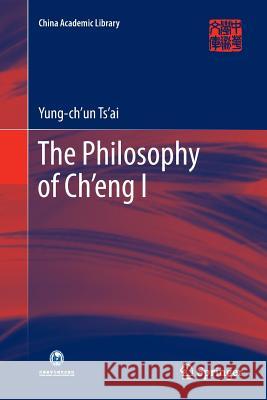The Philosophy of Ch'eng I » książka
topmenu
The Philosophy of Ch'eng I
ISBN-13: 9789811341878 / Angielski / Miękka / 2019 / 241 str.
Kategorie BISAC:
Wydawca:
Springer
Seria wydawnicza:
Język:
Angielski
ISBN-13:
9789811341878
Rok wydania:
2019
Wydanie:
Softcover Repri
Ilość stron:
241
Waga:
0.36 kg
Wymiary:
23.39 x 15.6 x 1.4
Oprawa:
Miękka
Wolumenów:
01
Dodatkowe informacje:
Wydanie ilustrowane











